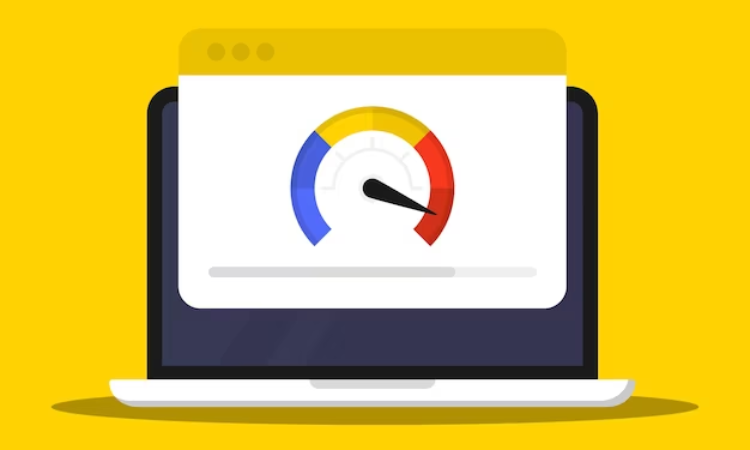Page speed is crucial for users because faster pages work better and give a nicer experience. If a page takes more than 3 seconds to load, around a quarter of people will leave and pick a different result. Page speed is about how quickly a page shows up after you ask for it. If your page is slow, people might leave before it even finishes loading, affecting how they see your brand and what you offer.
Even a small delay of 500 milliseconds can make people think less of your site and brand, possibly leading to less money coming in. So, caring about page speed is important for reaching your goals and making more money in the end. Thus, fix website speed through this blog.
What Things Slow Down Site Loading Speed?
Large Image Files:
Big images can make websites load really slow. When images are too big and not made smaller or compressed, they use up a lot of internet space, making pages load slowly. To fix this, use tools like TinyPNG or JPEG-Optimizer to make images smaller without losing quality. This way, the website will load faster for people.
Too Many HTTP Requests:
When a webpage has too many things to load, like images, styles, and scripts, it can take a long time. To fix this, reduce the number of things on a page, combine files into one, and use CSS sprites. This makes the loading process faster and makes the website work better.
Unoptimized Code:
Badly written code with extra things in it can make a website slow. To fix this, check the code, remove extra stuff, and make it cleaner. Use tools like UglifyJS or Terser to make the code smaller. This makes the website work faster and better.
Uncompressed Files:
Big files, like JavaScript or CSS, can slow down a website. To fix this, use compression like Gzip or Brotli to make the files smaller. Smaller files load faster, making the website quicker and better for users.
Not Using Browser Caching:
If a website doesn’t save files on users’ devices, it can be slow. To fix this, use caching to store files temporarily. When people come back to the site, their browsers can use the saved files, making the website load faster. Set up caching right to keep things fresh and load quickly for people who return.
Too Many Ads:
Having lots of ads on a webpage can make it slow. Many ads mean more requests, which causes delays. To fix this, use techniques like asynchronous loading and show fewer ads. Lazy loading helps by loading ads only when users scroll to them. This way, the page loads quickly without using too much internet at the start.
Unnecessary Plugins:
Too many plugins can make a website slow. To fix this, turn off unnecessary plugins and use lighter ones when possible. Keep plugins updated to work well with the latest software. By using fewer plugins and taking care of them, the website will be faster and work better.
Uncleaned Database:
A messy database can slow down a website. To fix this, regularly clean and organize the database by removing extra data and fixing inefficiencies. Use tools to automate this process. A clean database makes data come back faster and gives a smoother website experience.
Not Using Content Delivery Network (CDN):
If a website doesn’t use a CDN, it can be slow, especially for people far from the server. To fix this, use a CDN to spread website content across many servers globally. This reduces the time it takes for things to load, making the website faster.
Excessive Use of Redirects:
Too many redirects can make a website slow because each one asks the server for more things. To fix this, use fewer redirects and make them efficient. Update old or broken links to go straight to the right place. Less redirects make the website load faster and give users a better experience.
Outdated Technology Stack:
Using old ways to build a website can make it load slowly. Newer ways have better tricks to make things faster. If you update to the latest technology, like the tools and computer languages, your website can work quicker. This also makes sure your website is compatible with the latest standards and takes advantage of new tricks to make it faster for people.
Lack of Server Resources:
Sometimes, the computer that holds your website doesn’t have enough power or space. If this happens, your website can be slow. To fix this, you might need a stronger computer or a better place to keep your website. This way, more people can use your site at the same time without it getting slow.
Final Thoughts
Therefore, in this blog, we have explained the basics of speed and the importance of speed optimization. Thus, we discussed all the major issues that slow down loading speed and how you can fix them. Additionally, use a website speed optimization tool like Website Speedy, which is well known for optimizing the site’s loading speed. To improve your website loading speed, utilize the expertise of Website Speedy and improve your performance.
